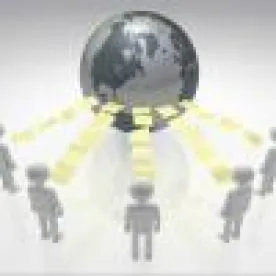On the one year anniversary of the judge’s decision in Oracle vs. Google throwing out a jury’s findings and ruling that Oracle’s Java API’s were not copyrightable, the Electronic Frontier Foundation is chiming in with its perspective.
A little background. The case is Oracle v. Google, 872 F.Supp.2d 974 (N.D.Cal. 2012). Oracle sued Google alleging copyright infringement arising out of Google’s use of Java APIs in the Android mobile operating system. After a six week jury trial, the jury found the Google had infringed the structure, sequence and organization of Oracle’s APIs. Following the verdict, however, the judge entered a judgment (notwithstanding the jury’s finding) and found that, as a matter of law, Oracle’s API were not entitled to copyright protection.
If you are not a lawyer (and perhaps even if you are), you are probably wondering – “how can that be?” Here is the catch. After the jury trial, the jury was instructed to take for granted that the Oracle API’s were copyrightable. This left the door open for the judge to evaluate this issue as a matter of law (not as a matter of fact). The door being open, the judge walked in, looked around and ultimately found that the names of the Java APIs were not copyrightable as a matter of law.
It is important to note that saying that the judge ruled that the APIs were not copyrightable is a bit of an over statement. In fact, the judge expressly said “This order does not hold that Java API packages are free for all to use without license.” The key to the judge’s ruling was that under Java’s rules, the declaration or method header lines must be identical in order to declare a method specifying the same function. In other words, the Java file names functioned as symbols in a command structure necessary to carry out a pre-assigned function. As such, they were utilitarian and, in a copyright sense, there was only one way to express the idea. Thus, the judge ruled that it cannot be monopolized by copyright protection.
Oracle appealed.
EFF’s amicus brief seems to be primarily directed at the importance of ensuring that APIs are free from the restraints of copyright protection for the benefit of the development of the computer and software industries. EFF’s point is well taken. That said, to some degree, that point is independent of whether copyright protection does or does not extend to APIs. One would hardly suggest that whether copyright subsists in a work should be determined determined on how valuable it is to an industry.
The key issue (which EFF raises in its brief), I think, is whether the API constitutes a “process, system or method of operation.” These are among the laundry list of things expressly excluded from copyright protection under Section 102(b) of the Copyright Act. These things are not categorically excluded from copyright protection. The judge drove this point home writing about Java’s API; “Yes, it is creative. Yes, it is original. … But it is nevertheless a command structure, a system or method of operation …. For that reason, it cannot receive copyright protection.
So, even with the jury having come in, since Oracle’s appeal is pending, I suppose the jury is still out on this one. This case is one worth watching.




 />i
/>i

